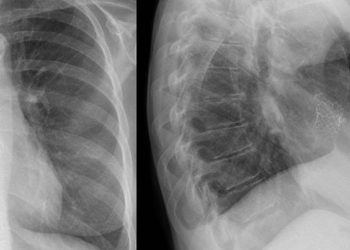Cyclophosphamide may be an effective treatment for myalgic encephalomyelitis
1. Six-year follow-up data reveal that ME/CFS patients treated with cyclophosphamide reported greater and more lasting improvements than those treated with rituximab or placebo.
Evidence Rating Level: 2 (Good)
Myalgic Encephalomyelitis/Chronic Fatigue Syndrome (ME/CFS) is a disease with unknown etiology, no validated biomarker, and no approved effective treatment. In the past, some ME/CFS patients with cancer have reported that their cancer drug treatment, which included the cytotoxic drug cyclophosphamide or rituximab, unexpectedly had beneficial effects on their ME/CFS symptoms. These observations suggest that ME/CFS may be associated with an autoimmune pathomechanism involving B cells/plasma cells and antibodies. To explore the long-term course of disease symptoms and possible late side effects of treatment, this study provided six-year follow-up data for patients with ME/CFS enrolled in the two clinical trials RituxME and CycloME. The RituxME follow-up study was conducted between 01.05.2021 to 01.09.2021, six years after inclusion, and the CycloME follow-up study was conducted between 25.10.2022 to 31.01.2023, six to seven years after inclusion. The RituxME randomized, double-blind and placebo-controlled phase III trial included 151 patients: 77 in the rituximab and 74 in the placebo group; however, patients were informed of their intervention group allocation after 24 months. The CycloME open-label trial included 40 patients who had knowledge of their active treatment the entire time. Both trials had similar inclusion time-period, inclusion criteria, except that patients with mild ME/CFS were not included in CycloME, and patients with disease duration > 15 years were not included in RituxME. For the six-year follow-up study, patient-reported outcome measures (PROMs) were used to compare values at baseline, at 18 months, and at six-year follow-up from the CycloME and the RituxME trials. In total this study included 112/148 (75.7%) of eligible participants from the RituxME trial, 58 in the rituximab group (mean age at baseline ±SD = 38.2 ±12.2 years, female N (%) = 48 (83%)) and 54 in the placebo group (mean age at baseline ±SD = 36.2 ±11.3 years, female N (%) = 48 (89%)), and 34/36 (94.4%) from the CycloME trial (mean age at baseline ±SD = 41.4 ±10.4 years, female N (%) = 26 (76%). Mean short Form 36 Physical Function (SF-36 PF) scores at baseline, 18 months, and at six years were 32.9, 42.4, and 45.5 in the RituxME rituximab group, 32.3, 45.5, and 43.1 in the RituxME placebo group, and 35.4, 54.4, 56.7 in the CycloME trial. At six-year follow-up, the percentage of patients with SF-36 PF > 70 was higher for patients treated with cyclophosphamide (44.1%) compared to those treated with rituximab (27.6%) or placebo (20.4%). The percentage of patients with SF-36 PF > 90 (within normal range) was also higher for patients treated with cyclophosphamide (17.6%) compared to those treated with rituximab (8.6%) or placebo (7.4%). Furthermore, a lower percentage of patients treated with cyclophosphamide (5.9%) had worsening symptoms at six years, indicated by a reduction in SF-36 PF of 20 points lower from baseline), compared to those treated with rituximab (10.3%) or placebo (14.8%). No serious unexpected adverse reactions were observed. Overall, study results support the hypothesis that ME/CFS may be associated with an autoimmune pathomechanism which may be targetable by immunomodulatory drugs. Despite encouraging results in the CycloME trial, cyclophosphamide should not be used for ME/CFS patients outside of clinical trials until future research is available as it carries toxicity concerns.
Click to read the study in PLOSONE
Image: PD
©2024 2 Minute Medicine, Inc. All rights reserved. No works may be reproduced without expressed written consent from 2 Minute Medicine, Inc. Inquire about licensing here. No article should be construed as medical advice and is not intended as such by the authors or by 2 Minute Medicine, Inc.







